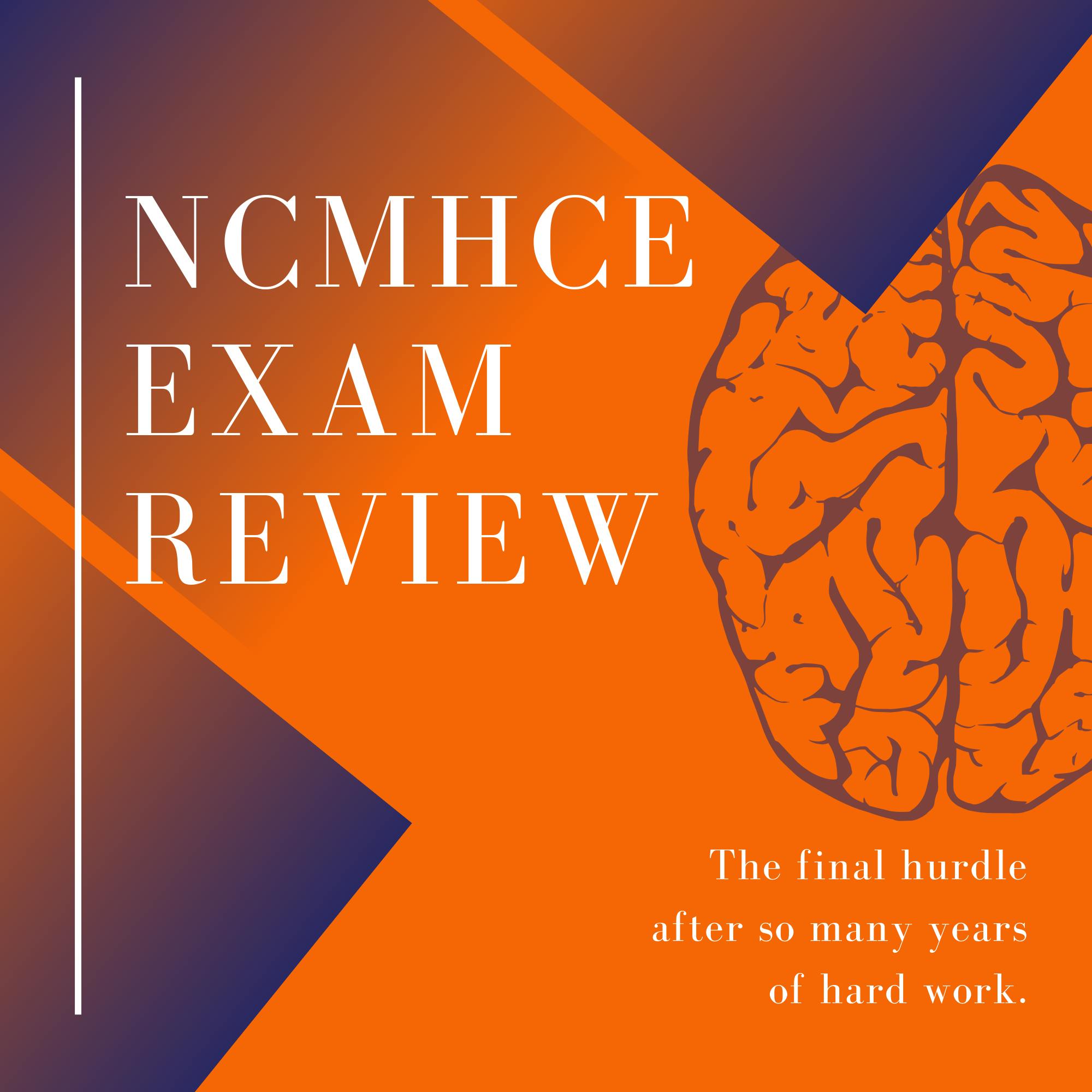Discover NCMHCE Exam Review
NCMHCE Exam Review

15 Episodes
Reverse
Define body dysmorphic disorder
Explore symptoms and issues experienced by people with BDD
Identify common co-occurring issues
Review literature on current treatment strategies for BDD
Learn more about your ad choices. Visit megaphone.fm/adchoices
Explore common disabilities
Identify bidirectional PACER impacts and interventions to address them
Learn more about your ad choices. Visit megaphone.fm/adchoices
Learn how to conduct a biopsychosocial interview and why it is important
Physical: CAMP CHANT
Affective/Cognitive: ATOMIC CHIPPER
Environmental: SS SHIP
Relational: ABCDEFs
Spiritual: CHIRP
Learn more about your ad choices. Visit megaphone.fm/adchoices
Review identified treatment planning skills
Learn more about your ad choices. Visit megaphone.fm/adchoices
Review goals and interventions to address anxiety,
anger, grief, blended families and child issues.
Learn more about your ad choices. Visit megaphone.fm/adchoices
The indications and contraindications for group therapy
Types of groups
Stages of group formation
Group curative factors
Therapist's role in group
Models of career counseling
Career counseling assessment instruments
Learn more about your ad choices. Visit megaphone.fm/adchoices
Review the stages of treatment
Review theoretical approaches for individual counseling including
CBT
Behaviorism
Humanistic
Developmental
Learn more about your ad choices. Visit megaphone.fm/adchoices
Explore issues related to the counseling relationships with people who are culturally different
Identify approaches to use with culturally diverse clients
Learn more about your ad choices. Visit megaphone.fm/adchoices
Identify the characteristics of a dangerousness assessment
Identify factors associated with a high risk for violence
Identify steps in preventing danger to others
Review special cases
Domestic violence
Child Abuse
Elder Abuse
Substance Abuse
Eating Disorders
Emergency calls from nonclients
Learn more about your ad choices. Visit megaphone.fm/adchoices
Review crisis theory and the varying types of crises
Describe the stages of crisis
Identify the features of a general crisis assessment
Differentiate between a crisis and suicide assessment
Identify factors associated with a high risk of suicide
Review legal and ethical responsibilities (Tarasoff and
Bellah vs. Greenson
Explore prevention and intervention strategies
Learn more about your ad choices. Visit megaphone.fm/adchoices
Summary
- Self Esteem and efficacy
- Developmental stage and unresolved crises
- Current social relationships
- Social relationship patterns
- Personality styles and traits
- Environmental factors (housing, finances, community attachment etc.)
- Integration using an interactive person in situation approach.
Learn more about your ad choices. Visit megaphone.fm/adchoices
Define assessment
Review acronyms to help you remember what to look for when assessing for a problem.
Learn more about your ad choices. Visit megaphone.fm/adchoices
Categories of information
Presenting issue
Mental Status Exam
Emotional
Behavioral
Physical
Personality
Coping Skills
Family of Origin
Culture
Social Supports and interpersonal relationships
Environment live and work
Developmental stage
Activities of daily living and ability for independence
Motivation
Learn more about your ad choices. Visit megaphone.fm/adchoices
Screening Questions and Common Diagnosis
Learn more about your ad choices. Visit megaphone.fm/adchoices
Evaluation of a clients current mental functioning
Combined with other information to arrive at formal diagnosis
Behavioral Aspects
Physical characteristics (ethnicity, cleanliness, weight, dress--age and setting appropriateness)
Communication barriers
Alertness
Movement and activity (tension, perseverative movements, non-goal-directed behaviors, itching/picking)
Facial expressions and continuity with words
Eye contact
Speech patterns (articulation, stuttering, mumbling, baby-talk, use of cultural dialects)
Attitude toward therapist
Learn more about your ad choices. Visit megaphone.fm/adchoices



















